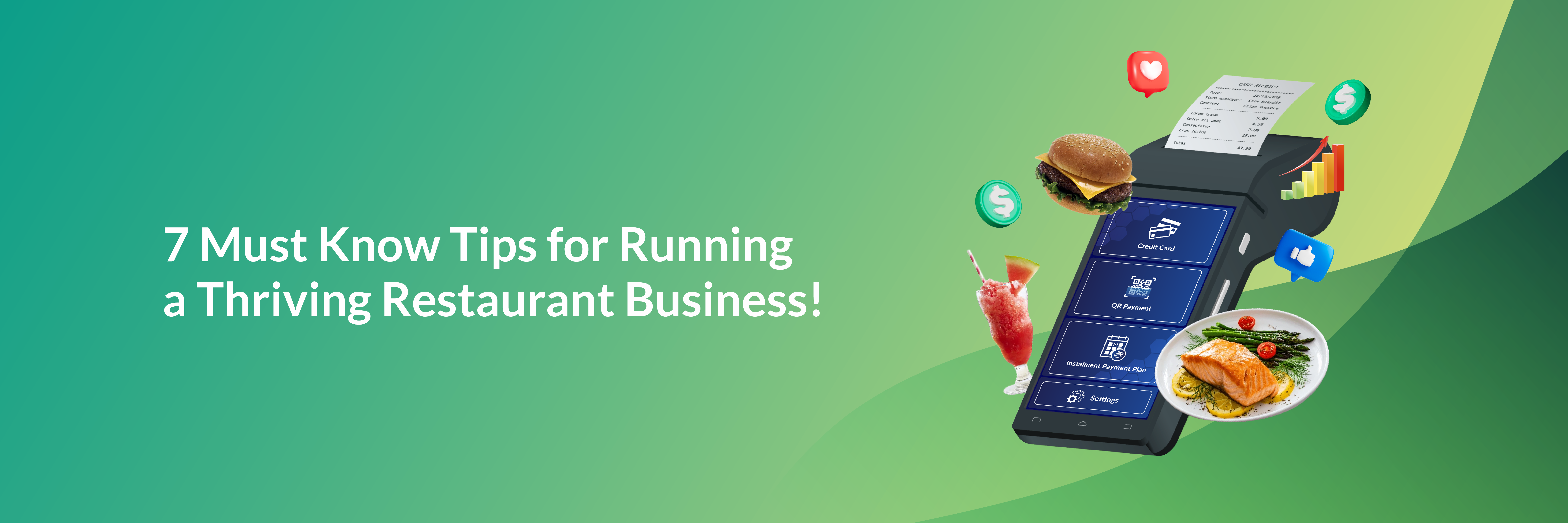How to Prepare for a Successful Restaurant Business from the Start!

Opening a restaurant may be a dream for many, but turning that dream into reality requires careful preparation across several areas, such as food, service, marketing, and finances. This article highlights 7 key steps that aspiring restaurant owners should know, including planning strategies, marketing techniques, and promotional methods to help your business grow and succeed.
7 Key Steps to Prepare for Your Restaurant Launch:
1. Signature Dishes with Captivating Flavors
The heart of any restaurant is in the taste of its food. Having distinctive and unique signature dishes is crucial to attracting customers and leaving a lasting impression that keeps them coming back for more! Sourcing high-quality ingredients, developing unique recipes, and presenting food in an appealing way are essential to building customer loyalty and turning occasional diners into regulars.
2. Accessible Location
Location is another vital factor in the success of a restaurant. Choosing a prime location involves selecting a bustling area with high foot traffic, close to communities or workplaces, ensuring easy and convenient access for customers. Additionally, having sufficient parking or access to public transportation options is crucial. For restaurants that are not easily accessible or lack parking facilities, offering delivery services is an excellent option to reach customers without them needing to visit in person—a trend that has become increasingly popular today. 
3. Sourcing Financial Capital
Opening a restaurant requires substantial capital, which includes the cost of goods, rent, deposits, wages, utilities, and marketing expenses. It is advisable to prepare and evaluate working capital, ensuring a financial reserve sufficient for at least 4-6 months as a contingency for potential losses during the initial stages of operation. This ensures that the business can continue operating even in the event of losses. Sources of working capital can include personal funds, business loans, or investments from partners. It is essential to carefully consider and plan these options in advance.
4. Restaurant Management System
Efficient management systems are key to smooth restaurant operations, from order management, inventory management, staff supervision, to accounting. Especially in this digital age, where integrating technology can enhance efficiency and potentially reduce costs.
· Payment Systems: As most people rarely carry cash nowadays, restaurants must provide cashless payment methods, including QR code scanning, e-wallets (e.g., TrueMoney Wallet, Rabbit LINE Pay, Dolfin Wallet, ShopeePay), and card readers for credit and debit cards, providing convenience to customers and mitigating errors and risks associated with cash handling within the restaurant.
· Point of Sale (POS) Systems: A quality POS system simplifies front-end management, including order processing, billing, stock monitoring, daily sales reporting, and promotion management.
· Employee Management Systems: Allows easy management of human resources and associated costs, helping to streamline the administration of human resources and related expenses.
|
If you are seeking a user-friendly, all-in-one payment solution, we recommend GHL's wireless (EDC) and POS system. GHL is a leading provider of payment services in the ASEAN region, supporting over 100 payment channels, across both offline and online.
Our EDC readers can process payments from six different bank credit cards in a single device, and we also provide API integration with POS systems. Expert support is available 24/7.
Interested in GHL’s EDC card readers and POS systems? Click here.
|
5. Staff Management
Running a restaurant, especially with a physical location, is difficult without additional help. Hiring staff to assist with operations and customer service is essential for smooth operations. When recruiting, it is important to select employees who are skilled and have a service mindset. Furthermore, regular training should be provided to maintain quality control, enhance staff knowledge, and ensure the best customer experience.
6. Ingredients and Inventory Management
Choosing high-quality ingredients and efficient inventory management is vital to maintaining food standards and minimising waste. Careful sourcing is essential this includes selecting the right suppliers, ensuring fresh deliveries, and maintaining proper storage. It's also important to track ingredient quantities and shelf life to avoid shortages or excessive waste.
7. Marketing Plan
In today’s competitive market, effective marketing is crucial to build brand awareness and attract customers, especially for those starting or have opened a restaurant recently. Your marketing plan should include both online and offline strategies. Use social media to share food images, videos, and stories, run targeted ads, engage influencers, offer promotions, partner with other businesses, and organise events to boost your restaurant's visibility.
While opening a restaurant may not be easy, with proper preparation, readiness, and a well-defined plan to address potential challenges, you can achieve your dream and succeed. By following the 7 guidelines we’ve provided, combined with thorough research of the restaurant market, your business is sure to grow effectively and sustainably.
For more information on GHL’s services, please contact our GISA chatbot on the GHL official website or call 0-2440-0111.


